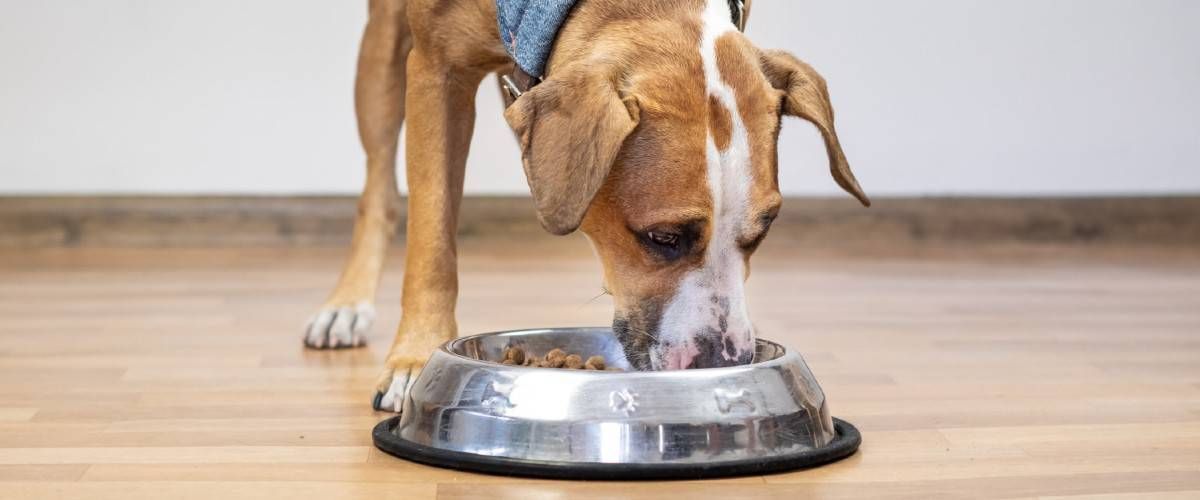Pet Diet & Nutrition

At Pet Urgent Care, we know that a healthy diet is vital for your furry friend's well-being. As a dedicated pet owner, understanding the importance of diet for your dog or cat is essential. A proper diet is not just about filling their stomachs; it's about enhancing their overall health and longevity. Here are some key reasons why diet matters:
- Maintains Healthy Weight: A balanced diet helps prevent obesity, reducing the risk of health issues like diabetes, joint problems, and heart disease.
- Supports Organ Health: Nutrients in the right proportions support the functioning of vital organs like the heart, liver, and kidneys.
- Boosts Immune System: Good nutrition strengthens the immune system, helping your pet fight off illness.
- Improves Skin and Coat Health: Proper diet leads to a shiny coat and healthy skin, reducing issues like flakiness and itching.
- Enhances Digestive Health: The right diet promotes smooth digestion and prevents problems like constipation or diarrhea.
- Supports Muscle Tone and Body Condition: Adequate protein intake maintains muscle mass and overall body condition.
- Energy Levels: A balanced diet ensures your pet has the energy for daily activities and play.
The Basics of Pet Nutrition
- Balanced Diet: Pets need a balanced diet including proteins, fats, carbohydrates, vitamins, and minerals.
- Life Stage Nutrition: Nutritional needs vary with age. Puppies and kittens, adults, and seniors have different dietary requirements.
- Special Diets for Health Conditions: Pets with health issues may need specialized diets.
Common Dietary Concerns
- Obesity: Overfeeding and lack of exercise lead to obesity. Monitor portion sizes and ensure regular exercise.
- Food Allergies: Symptoms include itching and digestive issues. Consult a vet for a special diet plan.
- Human Foods to Avoid: Some human foods are toxic to pets, like chocolate, onions, and grapes.
The Role of Life Stages in Diet
- Puppies and Kittens: Need nutrient-rich food for growth.
- Adult Pets: Require a balanced diet to maintain health.
- Senior Pets: May need diets catered to lower energy levels and changing metabolic rates.
Tips for a Healthy Pet Diet
- Quality Food: Choose high-quality commercial pet foods or well-planned homemade meals.
- Regular Vet Checkups: Ensure your pet's diet meets their nutritional needs.
- Watch for Weight Changes: Adjust diet and exercise as needed.
Why See a Veterinarian About Your Dog or Cat's Diet?
In the age of the internet, it's tempting to rely on online resources for your pet's diet. However, consulting a veterinarian offers invaluable insights and personalized care that you simply can't find online. Let's delve into why a vet visit is crucial for your dog or cat's dietary needs.
- Expert Nutritional Knowledge: We have extensive training in animal nutrition and understand the complex needs of different breeds, ages, and health conditions.
- Personalized Diet Plans: Unlike generic online advice, we provide tailored diet plans based on your dog's specific health, lifestyle, and nutritional requirements.
- Identifying and Managing Health Issues: We can detect and address health issues that may be influenced by diet, such as allergies, obesity, or gastrointestinal problems.
- Safety and Efficacy: We ensure the diet is safe and effective, preventing potential nutritional imbalances or deficiencies.
- Access to Prescription Diets: We can prescribe specialized diets for medical conditions, which are not available to the general public.
- Monitoring and Adjustments: We offer ongoing monitoring and adjustments to the diet as your cat or dog ages or as health conditions change.
- Credible Information: We provide evidence-based recommendations, whereas online sources can be unreliable or misleading.
A proper diet is fundamental for your pet's health, impacting everything from their weight to their fur quality. Come consult with us to ensure your pet's diet is tailored to their specific needs, age, and health conditions. Remember, a healthy pet is a happy pet!

